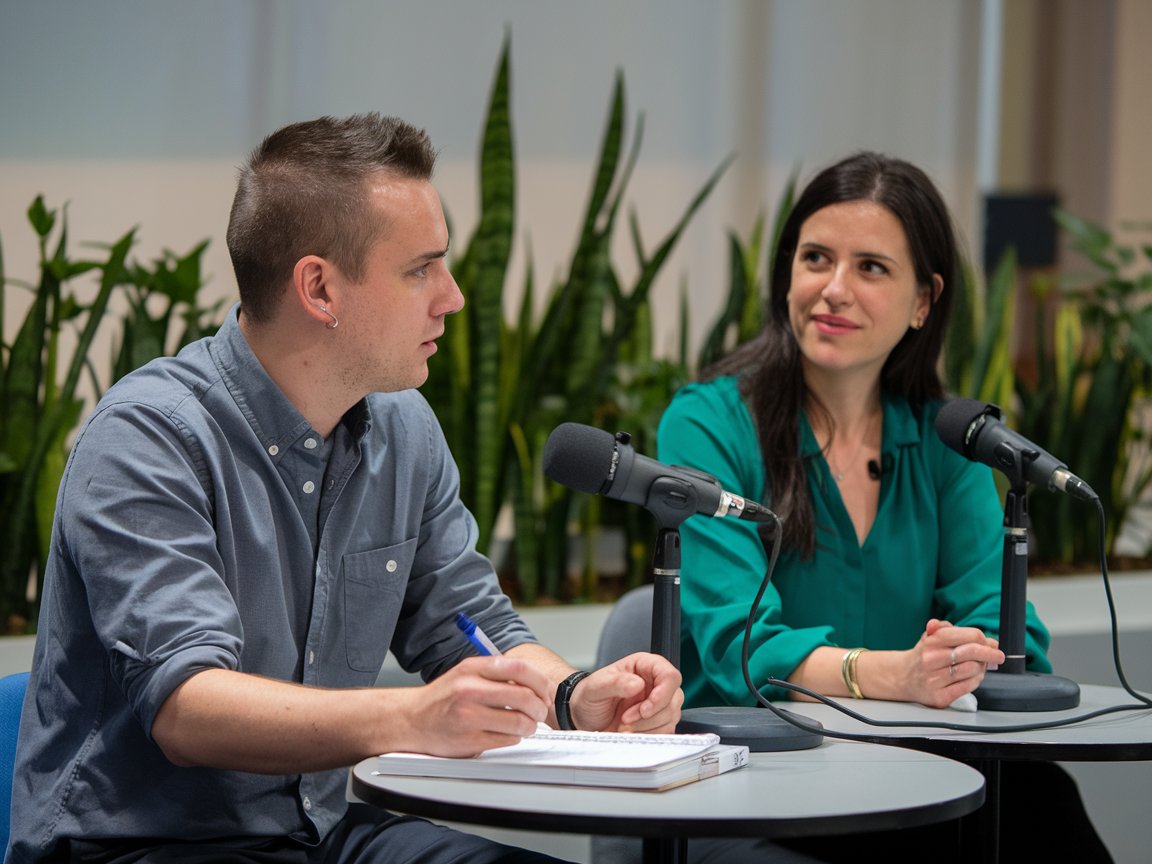
Voice Cloning Ethics: Navigating AIdeaFlow's Innovative Landscape
In the rapidly evolving world of artificial intelligence, voice cloning technology has emerged as a groundbreaking innovation. As we harness the power of AI to replicate human voices with remarkable accuracy, ethical considerations take center stage. The implications of voice cloning stretch far beyond mere convenience; they touch on issues of consent, identity, and the potential for misuse. This blog post will explore the ethical landscape surrounding voice cloning in the context of AIdeaFlow, a pioneering platform for AI-powered podcasts and audio content.
Understanding Voice Cloning
What is Voice Cloning?
- Voice cloning is a technology that uses AI algorithms to produce a synthetic version of a person’s voice.
- It can create realistic audio outputs that mimic the tone, pitch, and cadence of the original speaker.
- Applications range from entertainment to accessibility, allowing for personalized audio experiences.
The Technology Behind Voice Cloning
- Voice cloning utilizes deep learning models, particularly neural networks, to analyze and replicate voices.
- Data from hours of recorded speech is required to train these models effectively.
- Advances in Natural Language Processing (NLP) contribute to the seamless integration of voice and text.
The Rise of AIdeaFlow
What is AIdeaFlow?
- AIdeaFlow is an innovative platform that allows users to create AI-powered podcasts and audio content effortlessly.
- It leverages voice cloning technology to provide personalized audio experiences for content creators and audiences alike.
- The platform aims to democratize content creation, making it accessible to a broader audience.
Features of AIdeaFlow
- User-friendly interface for easy podcast creation.
- High-quality voice cloning options that can replicate various accents and styles.
- Integration with existing audio editing tools for a seamless workflow.
Ethical Considerations in Voice Cloning
Consent and Ownership
- The importance of obtaining explicit consent from individuals whose voices are cloned.
- Questions surrounding ownership of cloned voices: is it the original speaker or the entity that created the clone?
- The need for clear policies that outline the rights of all parties involved.
Misuse and Misinformation
- Potential for voice cloning technology to be used for malicious purposes, such as creating fake news or impersonation.
- The rise of deepfakes and their implications for trust in audio and video content.
- Importance of developing robust detection methods to combat misuse.
The Impact on Identity and Representation
Voice as Identity
- Discussion on how our voices contribute to our personal and social identities.
- Ethical concerns around altering or misrepresenting someone's voice without their consent.
- The role of voice in shaping public perception and reputations.
Representation in AI Voices
- The need for diversity in voice cloning datasets to ensure representation across different demographics.
- Risks of reinforcing stereotypes through limited voice options available on platforms like AIdeaFlow.
- The importance of creating inclusive AI that reflects a wide range of voices and cultures.
Legal Framework for Voice Cloning
Current Regulations
- Overview of existing laws that address intellectual property, privacy, and consent in voice cloning.
- The role of copyright laws in protecting original voice recordings.
- Limitations of current regulations in keeping pace with technological advancements.
Future Legislation
- The necessity for updated legal frameworks that specifically address the challenges posed by voice cloning.
- Potential policies that could protect individuals from unauthorized voice cloning.
- Encouraging stakeholders to engage in discussions around ethical AI governance.
The Role of AIdeaFlow in Ethical Voice Cloning
Promoting Ethical Practices
- AIdeaFlow's commitment to transparency and ethical use of voice cloning technology.
- Implementation of features that allow users to obtain consent before cloning voices.
- Collaboration with legal experts to ensure compliance with applicable laws and guidelines.
User Education
- Offering resources and training for content creators on ethical voice cloning practices.
- Encouraging responsible usage of AI technology through community engagement.
- Highlighting case studies that showcase ethical dilemmas and resolutions.
Balancing Innovation with Ethics
Encouraging Responsible Innovation
- The importance of fostering a culture of responsibility among AI developers and users.
- Encouraging innovation that prioritizes ethical considerations from the outset.
- The role of interdisciplinary collaboration in addressing ethical challenges in AI.
Engaging Stakeholders
- Importance of involving ethicists, legal experts, and community representatives in discussions about voice cloning.
- Creating forums for dialogue that promote diverse perspectives on ethical AI development.
- Building a consensus on best practices for voice cloning technology.
Future Trends in Voice Cloning
Advancements on the Horizon
- Exploration of how voice cloning technology will evolve in terms of realism and applications.
- Potential developments in emotional AI that could further enhance the authenticity of cloned voices.
- The impact of regulatory changes on the pace of innovation.
Predictions for Ethical Standards
- Anticipation of stricter ethical guidelines and standards for voice cloning in the coming years.
- The role of consumer demand in shaping the ethical landscape of voice technology.
- Predictions for how platforms like AIdeaFlow will adapt to evolving ethical expectations.
Conclusion
As we navigate the innovative landscape of voice cloning technology, platforms like AIdeaFlow stand at the forefront of this exciting yet challenging field. The ethical considerations surrounding voice cloning are complex, requiring ongoing dialogue and collaboration among stakeholders. By prioritizing consent, representation, and responsible innovation, we can harness the power of AI to create meaningful audio experiences while safeguarding individual rights and promoting a culture of ethical responsibility. As we move forward, it is crucial to remain vigilant and proactive in addressing the ethical challenges that come with this transformative technology.